Help - Neighbor's addition (cross-post w/ Building a Home forum)
Help, I could really use everyone's advice. I live on a block with older (circa 1940-50) two-story colonial style homes, as well as a few smaller ranches. My neighbors would like to build a third story (see the pic, which shows the existing roof vs. the new roof). Their house is less than 7 feet from our shared property line (which is less than the required amount by code), which means they will have to go to the Zoning Board for a special approval.
I am concerned about their addition for several reasons. First, by raising their roof by 6-7 feet, and then adding a tall back dormer running the length of their house they will be significantly obstructing our current views and light. Second, I'm concerned about my property (including 2 mature trees) being trespassed and damaged during construction. Third, the house will look out of character with the rest of the neighborhood, which currently has 1 and 2 story homes. It will tower above our and the other adjacent neighbor's houses. Finally, my neighbor has refused to consider other reasonable expansion options, such as finishing their existing basement, adding a second story to their existing single story side room, or expanding one or two stories into the rear of their home.
We are the closest neighbor by distance and would thus be most affected. I've been advised that the Board does not like to see opposition from neighbors, but there does not seem to be any guarantee that a neighbor must approve in order for the Board to grant the request.
If I object, then my neighbors will of course hold it against me. The Board could still possibly grant the request over my objection. If that occurred, then I can be sure my neighbor will not respect my requests that their construction crew keep off my property and not damage my trees.
If I do not object, then I will at least hopefully get some of their cooperation with respecting my property during the construction. Unfortunately, these neighbors routinely cross on my property and have hacked at my border shrubs without my permission and any commitments they make now (when they would like my cooperation) will likely be worth very little to me after they get what they want. Moreover, I will forever despise looking out my four windows that face their property and seeing obstructed views and receiving less light.
Generally, I am all in favor of people trying to improve their properties, but in this case I believe it would harm my own property. I feel as if I need to at least voice my opinion and try to protect my property value.
What would you do?

Comments (25)
User
9 years agoSounds like the neighbors do not respect you or your property now.
And, no matter the outcome, seems like there will be an ongoing problem.
You have two choices. Be submissive and deal with each trespass or damage incident as it happens.
Or be a bigger problem. Object to the addition. Resist every thing they try. Call the authorities on every incident. Take them to small claims court for any damage. Be a bigger pain to them than they are to you. I'll bet they capitulate first.
Related Professionals
Southbridge Kitchen & Bathroom Designers · Cocoa Beach Kitchen & Bathroom Remodelers · Port Charlotte Kitchen & Bathroom Remodelers · Tempe Kitchen & Bathroom Remodelers · Tuckahoe Kitchen & Bathroom Remodelers · Lomita Interior Designers & Decorators · Wareham Interior Designers & Decorators · ‘Ewa Beach General Contractors · Leominster General Contractors · Mount Vernon General Contractors · North Lauderdale General Contractors · Rotterdam General Contractors · Selma General Contractors · Towson General Contractors · Woodland General ContractorsJoseph Corlett, LLC
9 years agonewbie14:
Try again to speak with your neighbors about the problem. Then when you go to the planning board, you can say you've tried to work it out.
When you go to the board, you are playing by the rules. You've got nothing to apologize for, win or lose.
rockybird
9 years agoIf they were truly nice neighbors, you would think they would consider the implications of their addition on your property. Have you spoken with them to let them know of your misgivings and the hardship it places on you? If they are not considerate of you and your property, I might just go to the board. Even if it does nothing, you will know that you have tried.
snoonyb
9 years ago"First, by raising their roof by 6-7 feet, and then adding a tall back dormer running the length of their house they will be significantly obstructing our current views and light."
Add your own addition.
"Second, I'm concerned about my property (including 2 mature trees) being trespassed and damaged during construction."
Most construction workers, as a courtesy and out of respect, will not trespass.
Your concerns about the trees, suggests that your trees encroach on their property.
If so, then they have the right to not only trim the branches, cut any roots that may be affecting their property, as well as the hedges, dump the debris on your property for you to dispose of."Third, the house will look out of character with the rest of the neighborhood, which currently has 1 and 2 story homes"
And subsequently raise the property values.
"Finally, my neighbor has refused to consider other reasonable expansion options,"
So, since they are the owners, the perception of "reasonableness" lies with you?
"such as finishing their existing basement,"
Which may presently otherwise used.
"adding a second story to their existing single story side"
Which may not satisfy the square footage needed.
"room, or expanding one or two stories into the rear of their home."
There-by affecting their property value as well as the marketability by reducing the open area.
Have you ever heard the age-old adage,"good fences, make good neighbors"?
prairiemoon2 z6b MA
9 years agoI don't know how someone can expect to put an expansion on their property if they are only 7ft away from your property line. We have zoning laws that don't allow less than 15ft from property lines and we would have to gain a variance to do it. I would think the zoning board would consider your objections and the effect it will have on your property value. Also in our neck of the woods, third stories are very rarely done and I always thought that was a zoning law as well, but I'm not sure.
Is there a way you can find out who may have successfully opposed the zoning board and if they had legal representation to do it. Maybe you could speak to someone who knows the ins and outs and can recommend how you can present your opposition in a way that is successful.
I would assume that the renovation will bring in more tax dollars, perhaps that is why they don't like neighbor opposition. They should be fair to all neighbors regardless of the tax benefits, shouldn't they?
clarettekim
Original Author9 years agoThank you for the many helpful comments and suggestions. They helped me think more about all sides of the issue and I will be sure to keep them in mind as this process goes forward. Thank you again.
geoffrey_b
9 years agoI've been through this with a set-back issue. What I have learned is that we are governed by fools / idiots - it's painful to deal with these people.
I would not speak to the neighbour about the proposed project.
Either they need a zoning variance or not. If they do, then decline to sign your acceptance.
If they need a variance, you will recieve a notice of zoning board meeting. The deal is, they have already made up their minds before the meeting.
The next step is to go to the city council meeting (here's where you can see real idiots in action), where they will finialize the variance. As another poster stated: anything that increases property taxes gets a variance.
So save your emotion / time / money (don't hire a lawyer).
To be fair, a lot of older homes were built on too small of lots, too close together, etc. Too small bedrooms, not enought closets, baths, etc. By not allowing change all the home owners in your area are stuck in the past.
aidan_m
9 years ago"We have zoning laws that don't allow less than 15ft from property lines"
Every village can set up whatever zoning laws the people choose. In a real city, property lines often have no required setback. It would be impossible to build a vibrant urban environment with 15 foot setbacks. The walkability decreases as the setback increases. Nobody likes automobile traffic, but that is exactly what you are creating by requiring property setback. The only places in the Untied States where a person can live without a car are cities without property setbacks, like New York, Boston, Chicago, and San Francisco.
If you think any of those cities are cool or vibrant, you can thank the lack of property setbacks as one of the main driving forces behind their success. These cities are not stuck in the past. The future of America, if it is to look like Plano, TX, or Scottsdale, AZ, is not sustainable.
camlan
9 years agoI'd go to the zoning meeting and express your concerns. The neighbors might still get their variance, but there's a good possibility that the zoning board will add in language that will require them to repair any damage they do to your property, or pay you for damages due to loss of light/view.
My father protested a zoning variance that his neighbors wanted. They wanted to basically cover their entire back yard (small, old city lot) with a three story, three car garage that would house the cars, a home office and storage space.
My father's concern was that his back yard was down hill from the neighbors and already got a lot of run-off from the neighbor's yard every time it rained. With the proposed garage, there would be even more run-off, and the chance that Dad's basement would flood.
The city held up the variance and sent someone out to inspect both yards. The variance was granted, but with the provision that if the amount of water in Dad's yard increased or his basement flooded, the neighbor would have to pay for a drainage system to remedy this. (Or, of course, the neighbor could include said drainage system in his plans from the start. Which he chose not to do.)
So the garage was built. And Dad's basement flooded with the very next rainstorm.
And the neighbor had to pay to install a drainage system. Much more than he would have had to pay had he just added it in from the start.
So you might not be able to block the variance from happening. But you might be able to get some compensation if your property is damaged.
And if the neighbor gets the variance, be sure to introduce yourself to all the contractors who work on his property and point out the property lines and who owns what. Also check the regulations for who can cut which tree branches, etc. In most areas, homeowners can trim branches that grow over their property, but these things can vary greatly. You want to know exactly what the neighbor and his contractors can and can't do. Take pictures of the trees before construction starts, with a date stamp on them, so you can prove any damage that does occur.
And frankly, with neighbors who trespass on your property and cut your hedges (which I'm assuming are completely on your property), I'd just put up a fence.
Joseph Corlett, LLC
9 years agocamlan:
How does building a garage cause more rain to fall on one's property?
sjhockeyfan325
9 years agoTreb, is that a joke? Concreting over dirt means no place for that rainfall to soak in, so it all drained onto the father's downhill property.
greg_2010
9 years agoBuilding a garage decreases the exposed yard area where water can be absorbed into the ground. The same amount of rain falls, but there is less room for it to go. Hence, more water on the neighbours yard unless it's redirected somewhere else.
Joseph Corlett, LLC
9 years agoMy point was correlation is not causation. Suppose the neighbor had dense clay soil. It would absorb a little more rain than a roof, but not much more. Was any soil testing done?
It takes more than a flooded basement to prove that the new garage caused the problem.
If I were the neighbor, I would have mitigated for the water just to be on the safe side anyway.
This post was edited by Trebruchet on Wed, May 7, 14 at 12:52
camlan
9 years ago"How does building a garage cause more rain to fall on one's property?"
Not more rain. Just more water, flowing downhill from the neighbor's property to my father's, every time it rained or that snow melted
Someone from the city came out and investigated before the variance was allowed, and cited that there probably would be a problem--there were tests done, but I have no idea what they were. It took a few months to resolve. The neighbor was not required to install the drainage system, but it was strongly recommended.
In the interest of not making my post pages and pages long, I left out the numerous visits by various inspectors before the variance was granted, and the numerous visits from various inspectors after Dad's basement flooded after the garage was built.
It took about 10 months from the time Dad's basement first flooded for the city to determine that the garage was indeed the problem, and several months more while the neighbor hired his own experts to try and convince everyone otherwise.
These were very small city back yards--the new garage basically covered up 4/5 of the neighbor's back yard, plus they extended their existing driveway to the back of the house and enlarged it so there was room enough to turn a car around. The street is on a hill, and the neighbor's house was uphill from my father's.
My point really was that the OP doesn't have much to loose by lodging a protest against the variance. While the OP might not be able to prevent it, some compromise position might be reached. If the OP does not address the issue with the city at all, the neighbor may very well get everything he wants.
For the record, while the neighbor was not happy with my father or the cost of the drainage system, he remained on fairly good terms with Dad. And the neighbor's kids, who now had no yard to play in, were still allowed to play on the empty lot on the other side of Dad's house, which Dad owned, and where the neighbor kids had created a baseball diamond and football field. So it didn't turn into a neighbor war or spite fest.
powermuffin
9 years agoThis happened to my sister in a very nice neighborhood. Not only did her home's value go down because of the too tall house next door, the value of the too tall house did not hold. It was not in keeping with the neighborhood and when the owners tried to sell it, they had to take a loss.
I would either move, or fight like heck to keep the addition from happening.
DianeSaltiDawg
9 years ago"How does building a garage cause more rain to fall on one's property?"
Nobody ever made that claim! Sheesh!!!
snoonyb
9 years agoWhat's interesting is that the OP choose to include an elevation, claiming that their natural light would be affected, yet elected to omit a plot plan that would reveal the compass orientation.
Also omitted is the ages of the affected properties, as well as the date that the 10ft. side yard requirement was adopted as a zoning ordinance.
Analytically, there can be several determination concluded by the planning dept. of which the dwelling with the 7ft. side yard is grandfathered in as an established residence, with an addition restriction of existing non-conforming.
I suspect that the reason for the variance is to build directly above the existing structure.
If the dwelling has been classified as an existing non-conforming, there is a reasonable probability the the variance will be denied, as presented, but would be approved if the addition would conform with the current side yard requirements, of 10ft.
In that event, would the trees and light still be an issue?
raee_gw zone 5b-6a Ohio
9 years agoThis is very similar to the situation that I had last summer. Same era and type of houses. My neighbors (whose garage was only 1 foot from the shared property line, and only 12 feet from my house) wanted to build a 2nd story onto the garage, and extend the structure both in front and in back (which would have brought the rear corner to within just a few inches of the line since their house did not sit square on the property).
I had also had some difficulty with them because of trash issues but tried not to let that influence my feelings about the addition.
So, I also was concerned about the loss of light and having a view of only the side of their house rom the dining, living and 2 bedrooms (they are close now, but with the garage placement I do get light and see sky and trees). I wasn't sure it would be putting that side of the house in constant shade, but it seemed like it would and I was concerned. This neighbor told me that I shouldn't care because in another, newer suburb, the houses were all constructed like that (which could be why I don't live in that suburb). .
I wrote a letter to the board in charge of the zoning variance permit and simply told them why I was concerned. I did not come out and say that I was opposed but had these concerns. The board did take that as an objection and had quite a discussion at the meeting (I read the minutes later). One board member pointed out that although they may think that they will be there a long time, they possibly won't but the changes would affect my house forever and perhaps my home's marketability. They did not approve the variance, the neighbor blamed me, but he chose to sell in order to get the bigger house that they needed.
Turns out though, that the addition would have violated state fire code (too close to the property line) and could not have been approved anyway.
I have very nice neighbors now, very glad that I didn't have to find out if my fears were founded or not.
You have more room between your houses; I wonder if there is a way to figure out if the proposed addition would block much light?
sjhockeyfan325
9 years agoYou can threaten a lawsuit of course, but that doesn't mean you would win -- speculative losses are generally not compensable.
And as for quiet enjoyment, there is no covenant of quiet enjoyment between neighbors - and you need either the law (zoning, nuisance), or a private agreement to protect you. Let's just say you live on a hillside and have a great view. There is no view ordinance and no law prohibiting your downhill neighbor from adding a story to his house thus blocking your view. You would have no claim, as there is no law or private agreement preventing him from "building up". This is a little different (a lot different, actually) because of the variance request - you could appeal it if its granted and probably win.
jakethewonderdog
9 years agoWow,
Okay... there's some good advice here and some really bad advice.
First, you absolutely should speak to your neighbor. I know this can be difficult... but you need to do it. Without being adversarial you can say that you wanted them to know you would be opposing the zoning variance. Try to be as general as possible with them as to your reasons ( they are closer than setback already, would be out of character with the neighborhood, and would block your light and view). Avoid anything personal that suggests they are bad neighbors (hack at your shrubs, cross your property).
Oppose the variance based ONLY on the zoning issues. Again, don't go into anything that sounds personal.
Zoning hearings like this are often a chance to find a compromise: "You can build closer than the setback if you put up a privacy fence", for example.
I don't know if some kind of trade-off is workable here... but something to think about.If you keep it professional, not personal you will have a much better chance of not damaging the relationship with your neighbor (and winning the zoning hearing).
renovator8
9 years agoIf a board of appeals grants a variance to increase the non-conformance of an existing non-conforming house, that would set a precedent for other houses that were too close to their lot lines.
I have spent a lot of time in zoning hearings waiting for my turn to present and have never seen a side yard setback variance granted unless the owner was able to show that a hardship existed that did not exist on other properties. Usually a zoning board of appeals only has the power to grant relief from a zoning ordinance for unusual or rare conditions or hardships and they must be careful to not rewrite the zoning ordinance by setting precedents that other homeowners can cite in their appeals. The board members will be listening for wording they can use in their written decision whichever way it goes.
jakethewonderdog
9 years agoRenovator8 makes a good point:
One of the reasons that you should state in your opposition to this is that it sets a precedent. They will understand why that's not something they want to do. But you need to say it- because they are looking for legally supportable reasoning either way.
Also make the point that there's no hardship case here.
renovator8
9 years agoI would like to add that the first step in this process is to read the zoning ordinance and look to at the submitted survey plan and learn what the neighbor already knows.
If you go to the hearing not knowing what the important issues are for the appeal board, your comments might be ignored.
This is a special game with special rules and you can't win the game without understanding the rules. An experienced zoning lawyer might be able to kill the appeal in the first minutes of the hearing without you showing your face. It is not always wise to do everything yourself. If your neighbors are presenting their appeal by themselves they would be an easy target.
In my experience, appeal boards have a difficult job and are not sympathetic to irrelevant amateurish arguments. Get some help and let these neighbors know they can't take advantage of you.
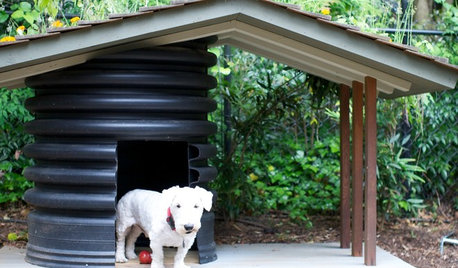
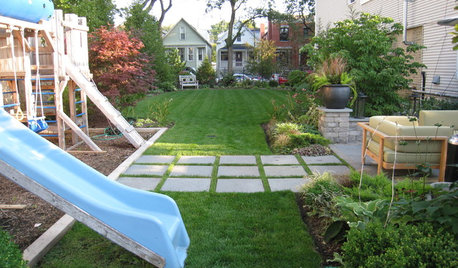

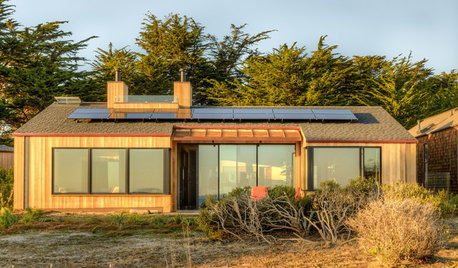

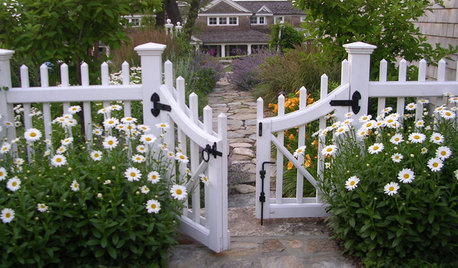
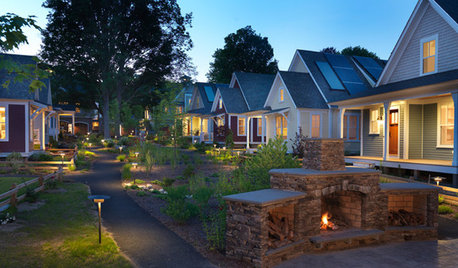










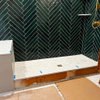
cold_weather_is_evil